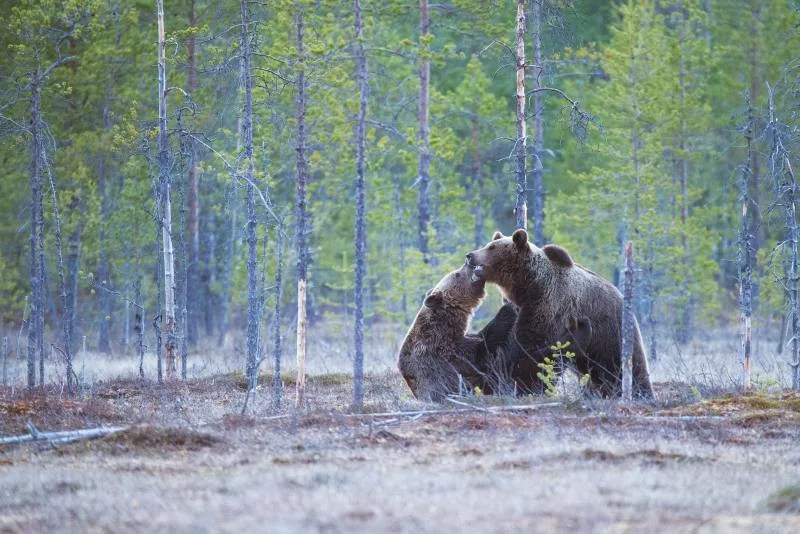
Be 'bear aware' this camping season: What you need to know
When you're out in the boundless outdoors, the last thing you want is a bear taking an interest in your campsite.
Ask anyone that lives in B.C. what the initials stand for, and they are likely to jokingly respond "Bear Country."
This is because British Columbia boasts one of the highest populations of black bears in the world. Between 120,000 to 150,000 inhabit the terrain from coastal forests to interior grasslands.
As people consider a more local approach to their summer holidays, camping might be on top of your list. But when preparing for either front or back country camping, keep in mind that you are heading into the bears' neighbourhood. So how do you stay bear aware?
FRONT COUNTRY CAMPING
When you are car camping, or front country camping, being bear aware is pretty easy, just eliminate the smells.
Meg Toom, with the Wildlife Education and Coordination Services says bears are biologically driven to consume calories, and can smell animal carcasses more than 30 km away.
Whenever you leave your campsite unattended, even if it is just to go to the bathroom, you must store all of your food and other products with an odor (like toothpaste and shampoo) in containers and place them in your car.
Toom tells us the same goes for when you are sleeping. The only items you should have in your tent is a flashlight and bear spray.
BACKCOUNTRY CAMPING
Protecting yourself from bears gets a bit more complicated if you are heading out into the backcountry, since you don’t have a car or safe place to store your food.
Toom says the first thing you should do is find a safe place to camp. “You never want to camp somewhere where there are fresh claw marks or scat on the ground. Certainly avoid waterways and riverways as they are natural wildlife corridors. Also never camp near a berry bush,” she says.
Once you have found a safe place to set up your tent, you need to find a safe place to store your food. For this Toom turns to the triangle method: “If your tent is in one area make sure your cooking area is at least 100 m away from there, and then from your cooking area another 100 m is where you should store your food.”
She adds that you also need to make sure your feed is stored at least 4 m high and away from any climbable structures.
Lastly, no matter where you are camping this summer you need to pack out what you pack in to keep yourself and the wildlife safe.










